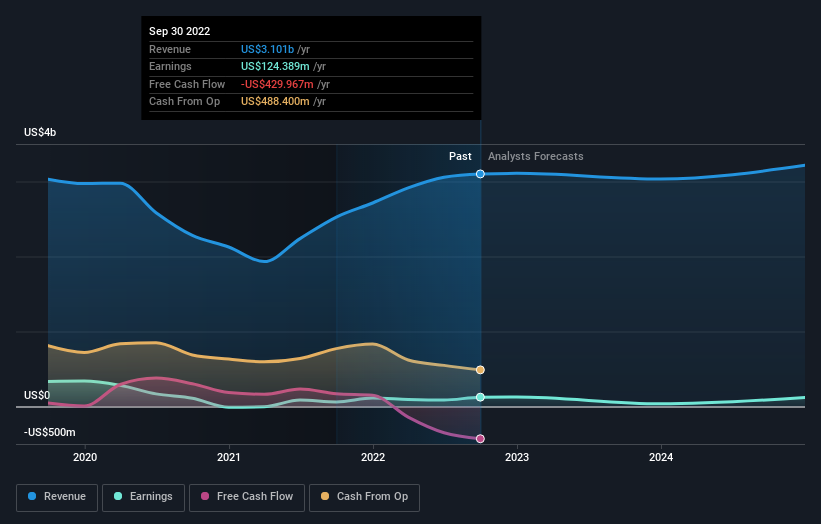
While SkyWest, Inc. (NASDAQ:SKYW) might not be the most widely known stock at the moment, it saw a decent share price growth in the teens level on the NASDAQGS over the last few months. With many analysts covering the stock, we may expect any price-sensitive announcements have already been factored into the stock’s share price. However, could the stock still be trading at a relatively cheap price? Today I will analyse the most recent data on SkyWest’s outlook and valuation to see if the opportunity still exists.
See our latest analysis for SkyWest
What Is SkyWest Worth?
Good news, investors! SkyWest is still a bargain right now according to my price multiple model, which compares the company's price-to-earnings ratio to the industry average. I’ve used the price-to-earnings ratio in this instance because there’s not enough visibility to forecast its cash flows. The stock’s ratio of 6.68x is currently well-below the industry average of 16x, meaning that it is trading at a cheaper price relative to its peers. What’s more interesting is that, SkyWest’s share price is quite volatile, which gives us more chances to buy since the share price could sink lower (or rise higher) in the future. This is based on its high beta, which is a good indicator for how much the stock moves relative to the rest of the market.
What kind of growth will SkyWest generate?

Investors looking for growth in their portfolio may want to consider the prospects of a company before buying its shares. Although value investors would argue that it’s the intrinsic value relative to the price that matter the most, a more compelling investment thesis would be high growth potential at a cheap price. Though in the case of SkyWest, it is expected to deliver a highly negative earnings growth in the next few years, which doesn’t help build up its investment thesis. It appears that risk of future uncertainty is high, at least in the near term.
What This Means For You
Are you a shareholder? Although SKYW is currently trading below the industry PE ratio, the negative profit outlook does bring on some uncertainty, which equates to higher risk. I recommend you think about whether you want to increase your portfolio exposure to SKYW, or whether diversifying into another stock may be a better move for your total risk and return.
Are you a potential investor? If you’ve been keeping an eye on SKYW for a while, but hesitant on making the leap, I recommend you dig deeper into the stock. Given its current price multiple, now is a great time to make a decision. But keep in mind the risks that come with negative growth prospects in the future.
So if you'd like to dive deeper into this stock, it's crucial to consider any risks it's facing. Every company has risks, and we've spotted 2 warning signs for SkyWest you should know about.
If you are no longer interested in SkyWest, you can use our free platform to see our list of over 50 other stocks with a high growth potential.
New: Manage All Your Stock Portfolios in One Place
We've created the ultimate portfolio companion for stock investors, and it's free.
• Connect an unlimited number of Portfolios and see your total in one currency
• Be alerted to new Warning Signs or Risks via email or mobile
• Track the Fair Value of your stocks
Have feedback on this article? Concerned about the content? Get in touch with us directly. Alternatively, email editorial-team (at) simplywallst.com.
This article by Simply Wall St is general in nature. We provide commentary based on historical data and analyst forecasts only using an unbiased methodology and our articles are not intended to be financial advice. It does not constitute a recommendation to buy or sell any stock, and does not take account of your objectives, or your financial situation. We aim to bring you long-term focused analysis driven by fundamental data. Note that our analysis may not factor in the latest price-sensitive company announcements or qualitative material. Simply Wall St has no position in any stocks mentioned.
About NasdaqGS:SKYW
SkyWest
Through its subsidiaries, engages in the operation of a regional airline in the United States.
Proven track record and fair value.
Similar Companies
Market Insights
Community Narratives



